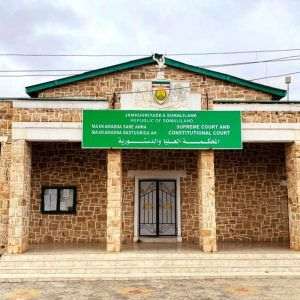The prolonged disagreements in the Government began disrupting the leu and the stock exchange two weeks ago, as the two are struggling to handle the uncertainty that our "elected officials" have "bestowed" upon them.
The vote of no-confidence increased the pressure on the leu and on the stock exchange, as the two of them yesterday had another session of depreciation.
Political tensions chased investors away, causing wariness among stock buyers, in spite of positive evolutions on the foreign markets. Financials were the only stocks to close in positive territory, after investors rushed to buy stocks of the five FIC"s at the end of the session, right after the fall of the Boc government.
According to analysts, these gains were purely speculative, as prices increased without a valid reason.
"I don"t think there"s a specific reason for the positive evolution of the FIC"s", said Andreea Gheorghe, chief analyst at brokerage firm "Intercapital Invest".
Cristian Sima, chairman of brokerage firm WBS România has a similar opinion, as he said that investors did nothing but "keep the Stock Exchange afloat". He said that in his opinion, the Stock Exchange is more likely to fall than the leu is, because "there is nothing to prop it up, unlike in the currency market, where the NBR has the ability to intervene like it did today (ed. note: yesterday)".
Leu exchange rate tests the 4.3 lei/euro ceiling
According to international analysts however, the political crisis will not have significant effects on the economy, especially as it is not the first time Romania is facing political issues.
"The short term effects of this unprecedented crisis on the economy will be minimal, Romania is used to political noise", Kenneth Orchard, analyst at Moody"s said.
In the long run however, there is the possibility that some investments could be postponed due to uncertainty, according to the analyst, but without a significant impact.
"For Moody"s, of greater concern is the fact that turbulences could delay the fiscal adjustments and structural reforms, which could lower the growth potential for Romania"s GDP. If this continues after the elections, it could lead to disagreements with the IMF and the EU. But we estimate that things will improve next year", Mr. Orchard concluded.
On the other hand, Frank Gill, analyst with "Standard&Poor"s", feels that the continued depreciation of the real exchange rate will help improve competitiveness and economic rebalancing, even though it could have a negative impact on the quality of banks" assets, due to sizeable loans in foreign currencies. "If the current situation leads to a political deadlock, meaning if the government will be prevented from carrying out its program to consolidate taxation and the economy, and the state of public finances degrades further, the pressure to lower the country"s sovereign risk rating will increase", Mr. Gill said.
The leu yesterday reached its lowest point in the last seven months, 4.2897 lei/Euro, with numerous attempts to break the 4.3 lei/Euro ceiling.
"The fact that the leu did not go past the 4.3 lei/euro ceiling probably indicates an intervention of the central bank", said Vlad Muscalu, chief-economist at ING Romania. He said that he expects the leu to continue to depreciate moderately until next year.
On the other hand, Liviu Voinea, executive director of the Group for Applied Economics (GEA), feels that the evolution of the exchange rate depends on the Central Bank alone.
"The leu is overvalued at the moment, as the economy collapsed in the last six months", says Voinea, who added that depreciation would come naturally, caused by the economic difficulties and not due to political instability.
Mr. Voinea feels that compliance with the IMF agreement is not endangered, at least for the next two months, as there are no requirements that can"t be met during that period.
• The IMF stands firm
The International Monetary Fund (IMF) expects Romania to keep its commitments made under its foreign financing agreements, regardless of the government in charge, said the IMF representative for Romania, Tonny Lybek.
"Our agreement is with Romania, not with a specific government", he said, adding that the IMF expects the country to honor its commitments regardless of government structure.
The current political tension is endangering the ability of the country to meet the goals it assumed through the agreement with the IMF and the European Commission, especially in terms of political reforms. One of the main commitments includes the adoption of the new pension law by December 31st.


















































